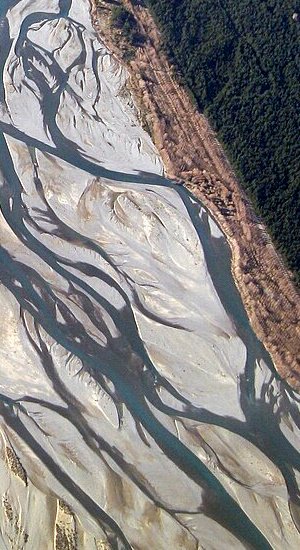Integrated Economic Valuation of Braided River Management in New Zealand
Attribution: I, Gobeirne
This report describes an integrated economic assessment that unites biophysical science and social science to inform braided river management in New Zealand, combining ecological modelling with market and non-market valuation to capture a range of environmental, social, and economic outcomes.
Market valuation quantified impacts on gravel extraction, stopbank construction and removal, land surrender and inundation, and irrigation reliability, while non-market valuation, using a Choice Experiment informed by ecological expert elicitation, estimated public willingness-to-pay for changes in ecological quality and fish and bird habitat.
By integrating these streams, the analysis revealed that widening scenarios generally generate net benefits through positive ecological outcomes and, in some cases, market gains, while bed raising can deliver strong ecological improvements but at market cost, and bed lowering tends to incur both ecological and market losses.
The findings provide a robust, evidence-based framework for braided river management decisions that align environmental enhancement with socio-economic outcomes.
Related Links
Research Report: Integrated Economic Valuation of Braided River Management in New Zealand, Tait, P., Saunders, J.T., Rutherford, P. (2025)

